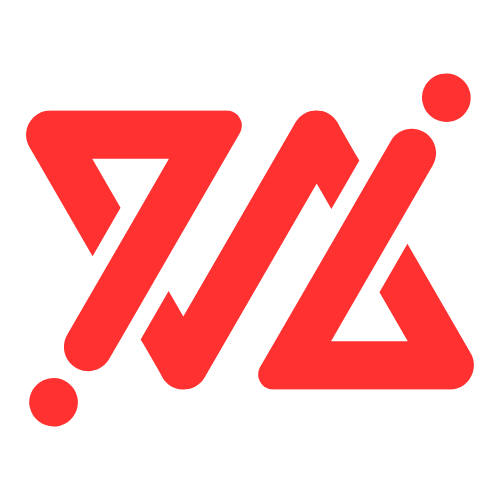In an increasingly digital world, the pressure to innovate quickly and deliver high-quality digital experiences has never been greater. Yet, traditional software development often poses a barrier to innovation due to its cost, time, and reliance on skilled developers. Enter low-code and no-code development platforms—a revolution in web and app development that democratizes access, accelerates innovation, and empowers businesses to do more with less.
At Aleya Innovations Ltd, a UK-based leader in web development and digital solutions, we’re at the forefront of this transformation. This blog post explores how low-code and no-code platforms are changing the landscape of software development, their benefits and limitations, real-world use cases, and how businesses can leverage them to build faster, smarter, and more cost-effectively.
What is Low-Code/No-Code Development?
Low-Code Development
Low-code platforms offer a visual development environment where users can build applications using drag-and-drop components and minimal hand-coding. They often provide:
- Pre-built UI components
- API connectors
- Visual workflows
- Built-in security and deployment tools
Popular low-code platforms include OutSystems, Mendix, and Microsoft Power Apps.
No-Code Development
No-code platforms take abstraction one step further. These are targeted at non-technical users, such as marketers, operations managers, or small business owners. No-code solutions require zero programming knowledge and rely entirely on visual tools.
Examples include Bubble, Webflow, Airtable, and Zapier.
Why Low-Code/No-Code Matters in 2025
According to Gartner, by 2025, 70% of new applications developed by enterprises will use low-code or no-code technologies—up from less than 25% in 2020. This rise is driven by:
- Developer shortages
- Remote work models
- The demand for rapid digital transformation
- Need for MVPs and agile innovation
For startups and SMEs, these platforms offer a gateway to innovation without the heavy overheads of traditional development teams.
Key Benefits of Low-Code/No-Code Platforms
1. Faster Time-to-Market
Build and launch apps or websites in weeks instead of months, allowing businesses to respond quickly to market demands or test new ideas rapidly.
2. Reduced Development Costs
With fewer developer hours and no need for deep technical resources, the cost savings can be substantial.
3. Empowerment of Non-Developers
No-code tools enable business teams to take charge of their workflows and digital tools—reducing dependency on IT teams and developers.
4. Improved Collaboration
Visual interfaces allow stakeholders from different departments (marketing, product, sales) to collaborate more effectively during development.
5. Rapid Prototyping
Create MVPs quickly to validate concepts before investing heavily in full-scale development.
Use Cases in Web Development
1. E-commerce Platforms
Tools like Shopify (with custom apps via low-code) and Webflow eCommerce allow businesses to launch fully functional online stores without writing a single line of code.
2. Internal Tools & Dashboards
Platforms like Retool and Airtable are being used to build internal tools—such as CRM dashboards, HR portals, and analytics hubs—within days.
3. Landing Pages & Campaign Sites
Marketing teams use no-code tools like Unbounce or Carrd to launch landing pages for product launches or ad campaigns without developer assistance.
4. Workflow Automation
With tools like Zapier and Integromat (Make), businesses can automate repetitive tasks and integrate multiple services—streamlining operations.
5. Mobile App Development
Platforms like Adalo, Thunkable, and Glide enable businesses to create mobile apps for both iOS and Android without traditional coding.
Limitations and Considerations
While low-code/no-code tools offer speed and flexibility, they aren’t always suitable for every project. Here’s what to watch for:
1. Scalability Issues
Complex, high-performance apps with real-time data processing or heavy backend logic may outgrow no-code platforms.
2. Vendor Lock-In
Using proprietary platforms can lead to challenges when migrating to custom solutions later on.
3. Security & Compliance
Enterprises must ensure that the platform meets compliance standards (like GDPR, HIPAA) especially when handling sensitive data.
4. Customization Limits
No-code platforms may not allow the fine-grained control or advanced features that a custom-coded solution offers.
5. Technical Debt Risk
Quick builds may lead to disorganized architectures, requiring eventual refactoring or redevelopment.
Low-Code/No-Code vs. Custom Development
| Feature | Low-Code/No-Code | Custom Development |
|---|---|---|
| Speed | Very Fast | Slower |
| Cost | Low | High |
| Skill Requirement | Minimal | High |
| Customization | Limited | Unlimited |
| Scalability | Moderate | High |
| Time to Market | Days to Weeks | Months |
| Vendor Dependency | High | Low |
Ideal Scenario: Use low-code/no-code for MVPs, internal tools, or simple apps; switch to custom development for complex, scalable solutions.
How Aleya Innovations Ltd Leverages Low-Code/No-Code
At Aleya Innovations Ltd, we combine the speed of low-code/no-code tools with the power of custom development to deliver flexible, scalable, and efficient solutions tailored to client needs.
Here’s how we support businesses:
- MVP Launch Services: We use tools like Webflow, Bubble, and Adalo to help startups bring their ideas to life in record time.
- Workflow Automation Consulting: We automate client processes using Zapier and Make, reducing manual work and boosting efficiency.
- Custom Web Solutions: When projects grow beyond the limitations of no-code, we build robust custom apps using modern stacks (React, Laravel, Node.js).
- Hybrid Approach: We often combine both approaches—e.g., Webflow for frontend and a custom backend via API.
This blended model ensures cost-effective and scalable digital products for clients across the UK and beyond.
Choosing the Right Platform
Here are some key questions businesses should consider before choosing a platform:
- What is the complexity of the app?
- Basic CRUD operations? → No-code is fine.
- Complex workflows or integrations? → Consider low-code or custom.
- How important is speed vs. flexibility?
- Urgent need for MVP → Low-code.
- Need deep control → Custom.
- Who will maintain the app?
- Non-technical staff? → No-code platforms like Webflow, Bubble.
- Dedicated IT team? → Custom or low-code hybrid.
- What’s your budget and timeline?
- Tight budget and short deadline? → No-code or low-code is the right start.
Popular Low-Code/No-Code Platforms to Explore in 2025
| Platform | Type | Best For |
|---|---|---|
| Bubble | No-Code | Full web apps |
| Webflow | No-Code | Responsive websites |
| Adalo | No-Code | Mobile apps |
| OutSystems | Low-Code | Enterprise-grade apps |
| Airtable | No-Code | Databases & workflows |
| Zapier | No-Code | Automation |
| Microsoft Power Apps | Low-Code | Business solutions |
| Appgyver (SAP) | Low-Code | Enterprise mobile apps |
| Thunkable | No-Code | iOS & Android apps |
The Future: AI + Low-Code/No-Code
The next frontier is the integration of AI with low-code/no-code platforms. Imagine:
- AI-powered builders: Tools like Durable, Softr AI, and Framer AI use prompts to generate entire web apps.
- Automated testing and bug detection
- ChatGPT-based workflow builders for dynamic automation
Aleya Innovations Ltd is closely monitoring this trend and building capabilities that blend AI + no-code to future-proof client projects.
Final Thoughts
Low-code and no-code platforms are not just a trend—they represent a shift in how we design, build, and deploy software. They unlock agility, reduce time-to-market, and enable innovation across all levels of an organization.
At Aleya Innovations Ltd, we believe in empowering businesses of all sizes to harness the power of modern web development. Whether you’re a startup looking to validate your MVP, or an established enterprise seeking operational efficiency, our tailored low-code/no-code solutions will get you there—faster and smarter.
Let’s Build Something Together
👉 Visit www.aleyainnovations.com
📧 Contact us at: info@aleyainnovations.com
🔧 Book a free consultation and discover how we can bring your digital vision to life using low-code or no-code solutions.

